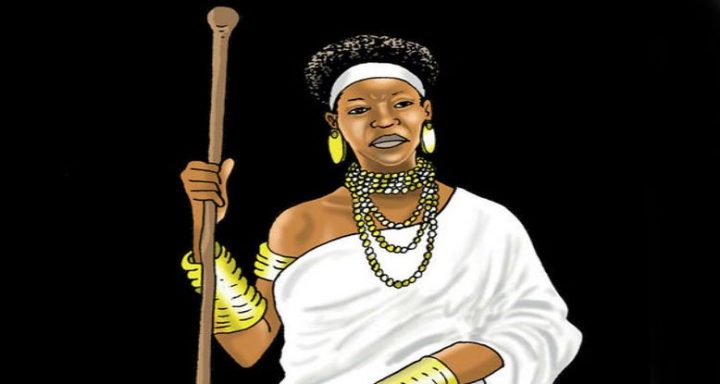Born between 1684 and 1686, Kimpa Vita was the fruit of a miraculous union. After the struggle of Queen Nzingha Mbande against colonialism and slavery, in 1666 another king named M’vita Kanga tried to free his people from the Portuguese. However, the rebellion ended very badly, as the Europeans possessed better weapons and only a child named Kangu in Vimba survived the massacre. He became a man and married a noblewoman from the kingdom of the Congo. A prophetess named Mafuta announced that a great woman would be born from them, sent by Nzambi Pungu or Tata Nzambi (the creator) to save people from their suffering. This child, Kimpa Vita, was baptized with the name Beatrice.
As a girl, she began praying to help many people heal from depression caused by the abduction of their loved ones. She also asked for the kongo Pedro IV, who had taken refuge in the mountains, to return to the throne.
It should be remembered that Christianity arrived in Africa, in Ethiopia to be precise, before many European countries, but without the slavery and oppression imposed by colonialism in Sub-Saharan countries. In this context Kimpa Vita adapted Christianity to the African reality, incorporating traditional religions. She was devoted to St. Anthony, who appeared to her with black skin and claimed that in heaven there were also saints of color. She sang and prayed in kikongo, the local language, and not in Portuguese or Latin- the languages and cults brought in by oppressors that the population did not know and did not understand.
In 1704 she initiated a nonviolent campaign for the liberation and restoration of the Realm of the Congo, which had been destroyed by the Portuguese. She opposed all forms of slavery, from local practices to those linked to European domination and led thousands of people in the reconstruction and repopulation of Mbanza Kongo, the ancient capital, and brought King Pedro back to it.
At this point her story takes on striking similarities with that of Joan of Arc. The Portuguese, the Capuchin missionaries and the king himself were jealous of her popularity, saw a grave danger in this figure and mounted a plot against her, accusing her of witchcraft, heresy and having a son before marriage. On July 2, 1706, Kimpa Vita was burned at the stake in Evolulu along with her partner and newborn son. According to his mother’s prophecy, he would reincarnate centuries later into a man named Simon Kimbangu, who would have been her true heir.
Catholic masses inspired by the cult Kimpa Vita created are held throughout Africa and the movement she founded still exists today. In Angola, a theatrical group, the Elinga Theater, has staged the show “Kimpa Vita: A Profetisa Ardente” (Kimpa Vita: the burning prophetess), written and directed by José Mena Abrentes. The anniversary of her death, July 2, is celebrated in many locations in Africa.
Translation from Italian by Liane Arter






